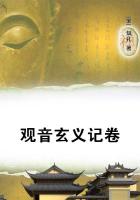By some secret hand--whether of indiscreet friend or wily foe was never known--one of the placards was attached to the door of the king's private chamber. The monarch was filled with horror. In this paper, superstitions that had received the veneration of ages were attacked with an unsparing hand. And the unexampled boldness of obtruding these plain and startling utterances into the royal presence aroused the wrath of the king. In his amazement he stood for a little time trembling and speechless. Then his rage found utterance in the terrible words: "Let all be seized without distinction who are suspected of Lutheresy. I will exterminate them all.--Ibid., b. 4, ch. 10. The die was cast. The king had determined to throw himself fully on the side of Rome.
Measures were at once taken for the arrest of every Lutheran in Paris. Apoor artisan, an adherent of the reformed faith, who had been accustomed to summon the believers to their secret assemblies, was seized and, with the threat of instant death at the stake, was commanded to conduct the papal emissary to the home of every Protestant in the city. He shrank in horror from the base proposal, but at last fear of the flames prevailed, and he consented to become the betrayer of his brethren. Preceded by the host, and surrounded by a train of priests, incense bearers, monks, and soldiers, Morin, the royal detective, with the traitor, slowly and silently passed through the streets of the city. The demonstration was ostensibly in honor of the "holy sacrament," an act of expiation for the insult put upon the mass by the protesters. But beneath this pageant a deadly purpose was concealed. On arriving opposite the house of a Lutheran, the betrayer made a sign, but no word was uttered. The procession halted, the house was entered, the family were dragged forth and chained, and the terrible company went forward in search of fresh victims. They "spared no house, great or small, not even the colleges of the University of Paris. . . . Morin made all the city quake. . . . It was a reign of terror." --Ibid., b. 4, ch. 10.
The victims were put to death with cruel torture, it being specially ordered that the fire should be lowered in order to prolong their agony. But they died as conquerors. Their constancy were unshaken, their peace unclouded.
Their persecutors, powerless to move their inflexible firmness, felt themselves defeated. "The scaffolds were distributed over all the quarters of Paris, and the burnings followed on successive days, the design being to spread the terror of heresy by spreading the executions. The advantage, however, in the end, remained with the gospel. All Paris was enabled to see what kind of men the new opinions could produce. There was no pulpit like the martyr's pile. The serene joy that lighted up the faces of these men as they passed along . . . to the place of execution, their heroism as they stood amid the bitter flames, their meek forgiveness of injuries, transformed, in instances not a few, anger into pity, and hate into love, and pleaded with resistless eloquence in behalf of the gospel."--Wylie, b.
13, ch. 20.
The priests, bent upon keeping the popular fury at its height, circulated the most terrible accusations against the Protestants. They were charged with plotting to massacre the Catholics, to overthrow the government, and to murder the king. Not a shadow of evidence could be produced in support of the allegations. Yet these prophecies of evil were to have a fulfillment;under far different circumstances, however, and from causes of an opposite character. The cruelties that were inflicted upon the innocent Protestants by the Catholics accumulated in a weight of retribution, and in after centuries wrought the very doom they had predicted to be impending, upon the king, his government, and his subjects; but it was brought about by infidels and by the papists themselves. It was not the establishment, but the suppression, of Protestantism, that, three hundred years later, was to bring upon France these dire calamities.
Suspicion, distrust, and terror now pervaded all classes of society. Amid the general alarm it was seen how deep a hold the Lutheran teaching had gained upon the minds of men who stood highest for education, influence, and excellence of character. Positions of trust and honor were suddenly found vacant. Artisans, printers, scholars, professors in the universities, authors, and even courtiers, disappeared. Hundreds fled from Paris, self-constituted exiles from their native land, in many cases thus giving the first intimation that they favored the reformed faith. The papists looked about them in amazement at thought of the unsuspected heretics that had been tolerated among them. Their rage spent itself upon the multitudes of humbler victims who were within their power. The prisons were crowded, and the very air seemed darkened with the smoke of burning piles, kindled for the confessors of the gospel.
Francis I had gloried in being a leader in the great movement for the revival of learning which marked the opening of the sixteenth century. He had delighted to gather at his court men of letters from every country. To his love of learning and his contempt for the ignorance and superstition of the monks was due, in part at least, the degree of toleration that had been granted to the reform. But, inspired with zeal to stamp out heresy, this patron of learning issued an edict declaring printing abolished all over France! Francis I presents one among the many examples on record showing that intellectual culture is not a safeguard against religious intolerance and persecution.
France by a solemn and public ceremony was to commit herself fully to the destruction of Protestantism. The priests demanded that the affront offered to High Heaven in the condemnation of the mass be expiated in blood, and that the king, in behalf of his people, publicly give his sanction to the dreadful work.















